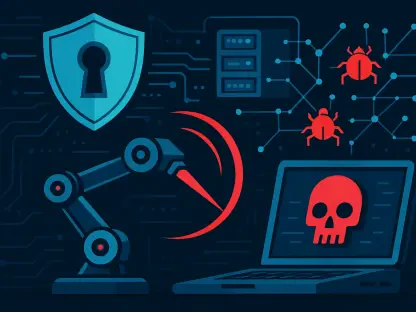Demand for advanced data storage solutions in the blockchain sector is skyrocketing. As data continues to grow exponentially, the need for innovative storage methods becomes more pressing. What if the current systems are not enough to handle the future of digital data?
The Critical Need for Decentralized Storage
Current centralized storage systems face significant limitations, from cost inefficiencies to security vulnerabilities. Central points of failure are particularly risky, as they can lead to catastrophic security breaches and data loss. Users increasingly worry about data reliability and privacy, highlighting the urgent need for a more secure and efficient solution.
Enter the Walrus Protocol by MystenLabs
MystenLabs has developed the Walrus Protocol to tackle these pressing issues. Operating within the Sui blockchain ecosystem, the protocol provides a decentralized approach to data storage. Unlike traditional storage solutions, Walrus utilizes a network of distributed nodes, ensuring robustness and resilience against data breaches and losses.
Cutting-Edge Technology and Benefits
The Walrus Protocol employs advanced erasure coding techniques to achieve data redundancy that is both cost-efficient and reliable. The integration with the Sui blockchain enhances speed, low latency, and scalability. This functionality is crucial for data-intensive applications like artificial intelligence (AI) and decentralized finance (DeFi), which require high performance and dependability.
Walrus Protocol in Action
Walrus efficiently segments and distributes data across numerous storage nodes. A staking mechanism involving WAL tokens ensures network integrity, as nodes must stake tokens to participate. This design prevents malicious activities and ensures high-quality data storage and retrieval. Users can retrieve data quickly and accurately, thanks to the protocol’s ability to reassemble information from fragmented nodes.
Real-World Applications
Various sectors stand to benefit enormously from the Walrus Protocol. In the non-fungible token (NFT) space, it provides secure and permanent storage for digital assets. The gaming industry can utilize Walrus for trustless storage of in-game assets, enhancing user experience by decentralizing data management. Multimedia platforms also gain a cost-effective and scalable solution for large-scale content distribution.
Expert Insights and Community Impact
Blockchain and data storage experts praise the Walrus Protocol for addressing key vulnerabilities in data storage. Research consistently supports the effectiveness of decentralized solutions, highlighting the protocol’s potential to transform existing systems. Early adopters and developers report improved data security and performance, emphasizing the protocol’s significant impact on the broader blockchain community.
“Decentralized storage solutions like the Walrus Protocol mark a significant advancement in the realm of secure data management,” says Dr. Emily Larson, a leading expert in blockchain technology.
Steps for Adoption
For developers and storage providers looking to adopt Walrus Protocol, the process is straightforward. Detailed documentation and support tools are available to facilitate integration. By utilizing the staking system and optimizing data management strategies, users can reduce costs while enhancing data reliability. Leveraging WAL tokens allows for efficient resource management, promoting active network participation and resource allocation.
In conclusion, the Walrus Protocol has set new standards in decentralized data storage by addressing the inherent weaknesses of centralized solutions. The use of advanced erasure coding and the strengths of the Sui blockchain enable Walrus to offer unparalleled security and efficiency. The protocol’s diverse real-world applications demonstrate its potential impact across multiple sectors. For those involved in blockchain-based projects, transitioning to Walrus Protocol represents a forward-thinking step toward more reliable and scalable data storage. As the technology evolves, it is poised to play a key role in the future of decentralized digital storage.









